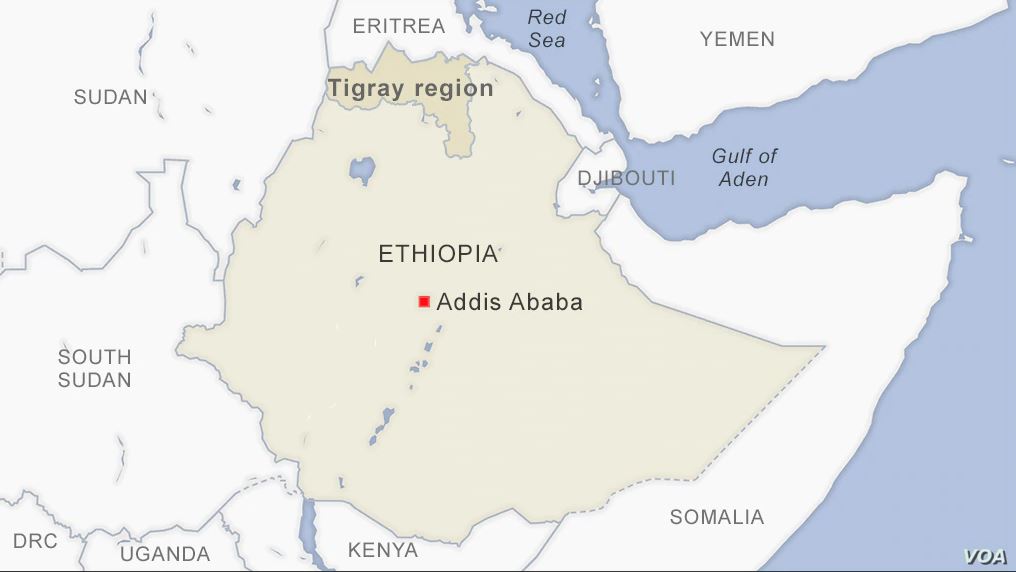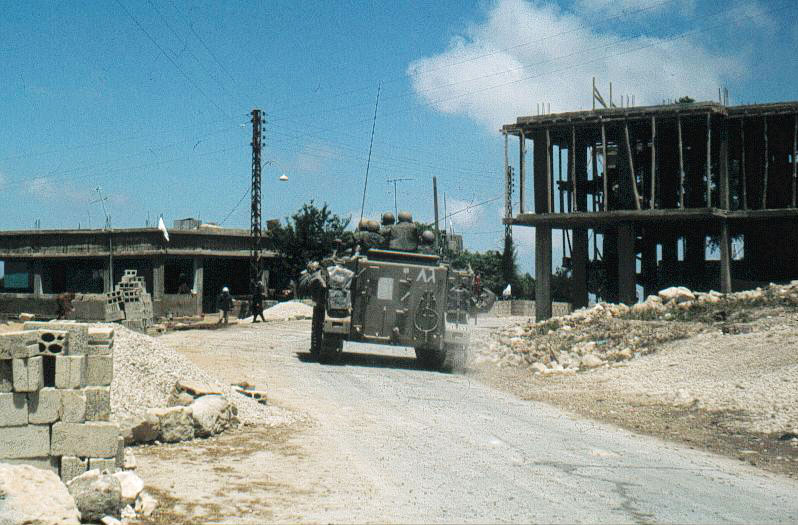
In 2018 the newly appointed Ethiopian Prime Minister Abiy Ahmed formally brought an end to the Ethiopia-Eritrean War. The armed conflict, fought between 1998 and 2000 following the invasion of Badme by Eritrean forces, killed around 80,000 people and resulted in nearly two decades of tension between the two countries. It was in 2019 that PM Abiy was awarded the Nobel Peace Prize for bringing peace to Ethiopia. Less than a year later, in October 2020, Ethiopia faces a civil war between the Tigray People’s Liberation Front (TPLF) and Abiy’s government. Following a reported attack from Tigray regional forces, Abiy ordered a military offensive in the Tigray region on 4 November 2020. The conflict is quickly becoming a major security concern for the country and its neighbours in the Horn of Africa. As the violence increases, there are increasing signs of a potential humanitarian crisis and instability in the region. Hundreds have already been killed, both sides are claiming war crimes, and thousands of refugees are fleeing the country.
The source of the conflict
The TPLF dominated Ethiopian politics between 1991 and 2019 as part of the Ethiopian People’s Revolutionary Democratic Front (EPRDF). The EPRDF was made up of four parties each one representing each ethnic group in the country. Although all four parties were intended to have equal representation, the EPRDF was dominated by the TPLF, resulting in ethnic-based inequality and tensions. Following protests for reform, in 2019 Prime Minister Abiy merged former member parties of the EPRDF, and other ethnic parties that had been overlooked by the EPRDF, into the Prosperity Party (PP) in an attempt to have fairer representation in central government. However, the TPLF opposed the merger because they would lose their disproportionate influence, as Tigrayans only constitute six per cent of the population. The TPLF made a statement, claiming that the merging of the parties would be akin to bringing together “fire and hay”, and called for the public to oppose the reforms. Rising opposition to the government led to an increase in tensions between the TPLF and Abiy Ahmed.
In August 2020, landmark elections were meant to be held in Ethiopia; this was to be the Prosperity Party’s first electoral campaign. However, in March 2020 it was declared that all national and regional elections were to be postponed due to the coronavirus outbreak. Opposition groups questioned the decision, claiming that the prime minister was deliberately refusing to hold the elections. Tigray took the unilateral decision to hold regional elections in defiance of the governments’ demands on 8 September 2020. The Prime minister declared the election as illegal and compared them to the construction of shanties by ‘illegal dwellers.’ In October, the federal government began to withhold funds for social welfare programs in retaliation to the ‘illegal’ elections in Tigray.

By November tensions between the government and the Tigray region had reached boiling point, and on 4 November Abiy ordered the military to enter the Tigray region, reportedly in response to an attack on government forces by the TPLF. Abiy warned Tigray’s leaders that there is no place for ‘criminal elements’ in Ethiopia, adding that they would ‘extract these criminal elements [from Tigray and] relaunch our country on a path to sustainable prosperity for all.’ The TPLF, however, see the use of troops as punishment for the September vote, and an act of aggression. Debretsion Gebremichael, President of the Tigray region, said: ‘what has been initiated against us is clearly a war, an invasion … this is a war we’re conducting to preserve our existence.’
The government declared a six-month state of emergency across the Tigray region on 5 November. The declaration grants the government the power to suspend political and democratic rights. It also allows for the government to impose curfews, searches without warrants, communications and transportation restrictions and the detention of any person or suspect that is taking part in illegal activities. Under these regulations, Prime Minister Abiy had cut all communication and transport links to the Tigray region.
A humanitarian disaster?
At the time of writing, Ethiopia appears to be on the brink of a potentially long and bloody civil war. The fighting is already believed to have claimed the lives of hundreds of people and fighting has spread across the region. Even with the government cutting off all media and communication with the Tigray region, there have already been reports of atrocities across the region. Amnesty International reported that a massacre occurred in Tigray on 9 November possibly killing hundreds. Amnesty International has been unable to establish who is responsible for the hacking to death of civilians on 9 November. However, witnesses claim that both have been killing civilians. If the situation worsens, there are concerns that this will result in a major humanitarian crisis. The UN has warned that “if the Tigray national (and) regional forces and Ethiopian Government forces continue down the path they are on, there is a risk this situation will spiral totally out of control”.
Not only are civilians at risk of being killed by violence, but because government forces have closed the roads to Tigray, aid agencies are struggling to reach the most vulnerable; prior to the conflict there were already 96,000 Eritrean refugees living in Tigray and 100,000 internally displaced people. Currently, the UN provides food for 600,000 people in Tigray and there have already been shortages of basic commodities such as flour. There have also been cuts to essential services such as electricity and water. If the conflict continues, the humanitarian situation in Ethiopia will continue to worsen.
In less than two weeks, the fighting in Tigray has resulted in at least 21,000 refugees fleeing the violence into Sudan. One border point, which can typically accommodate 300 refugees, is currently overwhelmed with 6,000 people. If the conflict continues, it is expected that potentially hundreds of thousands of people may flee the violence.
Prospects for de-escalation/improvement
At present, the future for Ethiopia looks bleak. The country is on the cusp of a major humanitarian crisis, akin to the suffering endured during Ethiopia’s civil war of the 1980s. The flow of refugees is putting pressure on to neighbouring countries, and the conflict seems to be worsening. On 13 November reports of troops firing into the Amhara region, an area that backs the Abiy government raises fears that the conflict could spread across more regions of the country. Today, some reports also claim that Tigrayan forces have fired into Eritrea, with the TPLF forces suggesting that Eritrean forces are supporting the Ethiopian government. Relations between the TPLF leaders and Isaias Afwerki, the ruler of Eritrea, have been poor for decades. Eritrean conscription, a call-up of retired Eritrean senior officers, and troop movements towards to border have recently worsened tensions between the TPLF and its northern neighbour. If the violence in Ethiopia cannot be abated, then the conflict has the potential to spill further into Eritrea, and potentially into powers across the Horn of Africa.
However, there are efforts that can help alleviate the humanitarian crisis. One of the main issues concerns the ability of aid to reach the most vulnerable. Every day without aid the thousands of vulnerable people in the region become more vulnerable as access to necessities is becoming increasingly harder. The UN is negotiating with both sides for humanitarian corridors to be opened, but as of yet, they are still unable to enter the region. The government must open the Tigray region to aid agencies to begin alleviating the suffering of the Ethiopian people. One of the major concerns for the UN is food insecurity in the region. Currently, the National Disaster Risk Reduction and Management Council says that it has enough resources to meet the needs of 300,000 people until January 2021, half of those that needed it before the conflict, and the Joint Emergency Operation Plan NGO says that it needs to restock in December 2020 to ensure it can continue to assist the population. Without a resupply of food, there are fears that hundreds of thousands of people will be left without access to food. The UN reports show a similar situation for medicine and emergency supplies.
The most pressing priority is bringing about a cessation of hostilities to stop the violence before the conflict escalates into a protracted civil war that could further destabilise the region. Analysts have argued that it is not too late to stop the war from spiralling out of control. Pressure must be applied to get both parties to agree to a ceasefire. The United Nations Secretary-General has called for “all stakeholders to take urgent steps to calm tensions in the country and to resolve challenges through an inclusive and peaceful dialogue”. But if more pressure is applied from parties within Ethiopia, its neighbours in the Horn of Africa, the African Union and abroad, then perhaps the parties may be brought to the negotiating table and to agree on a potential ceasefire. By stopping the fighting, opening the Tigray region, a humanitarian disaster could be averted.
The best-case scenario for Ethiopia would be for both the TPLF and the Abiy Government to agree to a ceasefire, both communication and transport links would be opened in Tigray allowing for aid to reach those who need it. The worst-case would be the escalation of violence, resulting in a catastrophic humanitarian disaster, the deaths of thousands of Ethiopians and potentially destabilise the region. The current circumstances indicate the worst-case scenario is more likely to become the reality, as Prime Minister Abiy said on 17 November that the chance for a ceasefire has expired, and the TPLF have reiterated that they will not back down. Therefore, there must be more international pressure on both parties to change their position and come to the negotiating table.
Philip Mayne is a final year PhD candidate at the University of Hull. He has a special interest in strategy, counterinsurgency, military ethics, military history, international security and relations. His thesis examines the relationship between military ethics and military effectiveness. Specifically, his work focuses on adherence to the Just War Tradition, and success in counterinsurgencies; through analysing the case studies of the Malayan Emergency, the Kenyan Emergency, the Algerian War and the Vietnam War. Philip has contributed to the Huffington Post and is an active member of the Hull University War Studies Research Group. Find him on Twitter @phil_mayne.
